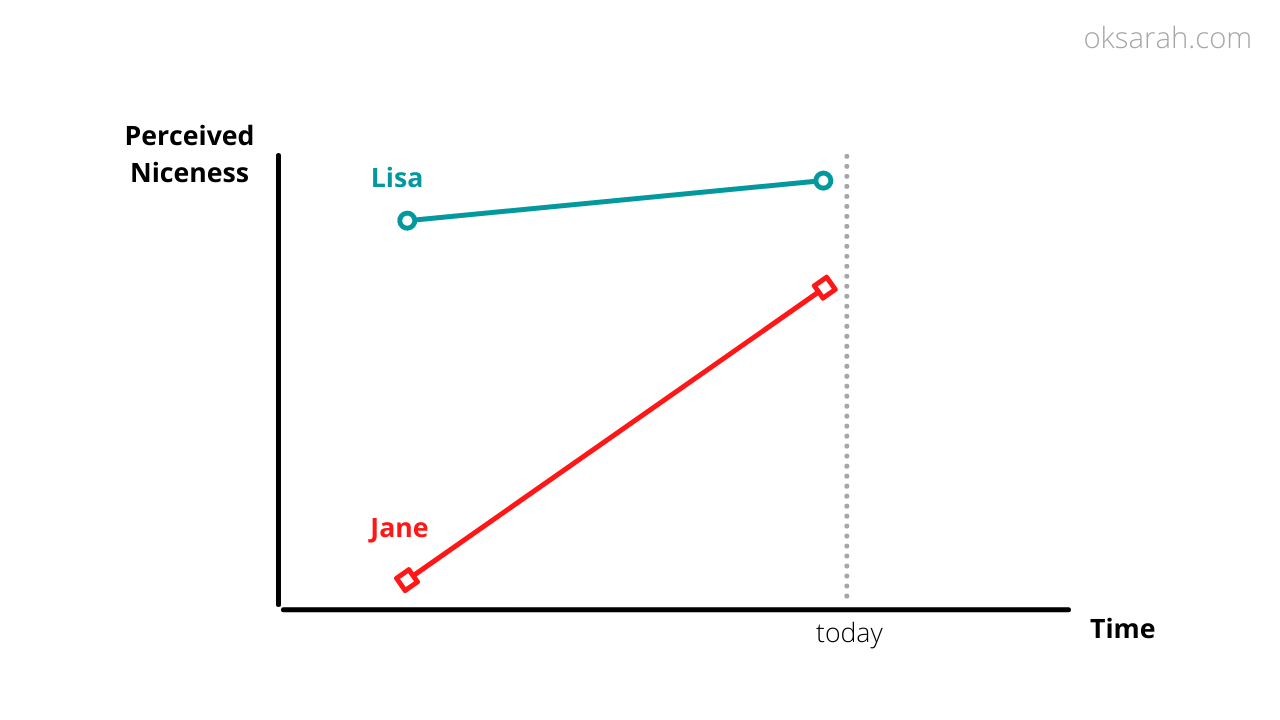First Impressions
Who's the better person?

You have two coworkers: Lisa and Jane.
Lisa has an agreeable personality. You think she’s polite, sweet, and generally a good person. Most people enjoy being around her.
Jane has a nasty personality. You think she’s abrasive, off-putting, and unpleasant to be around. Some even say she’s rude.
Taking these two at face value, most people would say Lisa is a good person, and Jane should be avoided.
But what if Jane is trying harder than Lisa? What if, without her efforts to be a better person, she would be far meaner than she currently is?
It's possible that Lisa’s genetic makeup or childhood makes it easy for her to get along with people. She doesn’t have to try to be kind.
Maybe Jane’s genetic makeup or childhood makes it difficult for her to trust people. She came from a family who didn’t nurture her like Lisa’s, so she learned to fend for herself.

When you first meet these coworkers, Lisa seems nicer because she might very well be.
From a rate-of-change perspective, however, wouldn't Jane be more admirable? We only see either woman's absolute position at any given moment, but each of their efforts over time may tell a more forgiving story.
If you judge a person by anything, let it be their growth, not their first impression.
